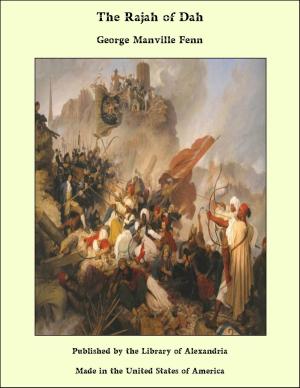Heathen Slaves and Christian Rulers
Nonfiction, Religion & Spirituality, New Age, History, Fiction & Literature| Author: | Elizabeth Wheeler Andrew & Katharine C. Bushnell | ISBN: | 9781465611659 |
| Publisher: | Library of Alexandria | Publication: | March 8, 2015 |
| Imprint: | Language: | English |
| Author: | Elizabeth Wheeler Andrew & Katharine C. Bushnell |
| ISBN: | 9781465611659 |
| Publisher: | Library of Alexandria |
| Publication: | March 8, 2015 |
| Imprint: | |
| Language: | English |
Time was when so-called Christian civilization seemed able to send its vices abroad and keep its virtues at home. When men went by long sea voyages to the far East in sailing vessels, in the interests of conquest or commerce, and fell victims to their environments and weak wills, far removed from the restraints of religious influences, and from the possibility of exposure and disgrace in wrongdoing, they lived with the prospect before them, not always unfulfilled, of returning to home and to virtue to die. That day has passed forever. With the invention of steam as a locomotive power of great velocity, with the introduction of the cable, and later, the wireless telegraphy; with the mastery of these natural forces and their introduction in every part of the world, we see the old world being drawn nearer and nearer to us by ten thousand invisible cords of commercial interests, until shortly, probably within the lifetime of you and me, the once worn out and almost stranded wreck will be found quickened with new life and moored alongside us. The Orient is already feeling the thrill of renewed life. It is responding to the touch of the youth and vigor of the West and becoming rejuvenated; it is drawing closer and closer in its eagerness for the warmth of new interests. The West is no longer alone in seeking a union; the East is coming to the West. And that part of the East which first responds to the West is the old acquaintance; the one that knows most about us, our ways and our resources; the element with which the long sea-voyager mingled in the days when it seemed more difficult for man to be virtuous, because separated so far from family and friends and living in intense loneliness. The element which now draws closest to us is that portion of the Orient with which the adventurer warred and sinned long ago, and which bears the deep scars of sin and battle. As the old hulk is moored alongside, in order that the man of Western enterprise may cross with greater facility the gangplank and develop latent resources on the other side, the Easterner hurries across from his side to ours with no less eagerness, to pick up gold in a land where it seems so abundant to him. Almost unnoticed, the Orient is telescoping its way into the very heart of the Occident, and with fearful portent and peril, particularly to the Western woman. This is not what is desired, but it will be inevitable. Exclusion laws must finally give way before the pressure. Already the Orient is knocking vigorously at the door of the Occident, and unless admission is granted soon, measures of retaliation will be operated to force an entrance. How to administer them the Orient already knows, for has not the door to his domicile been already forced open by the Western trader? The Orient is fast arming for the conflict.
Time was when so-called Christian civilization seemed able to send its vices abroad and keep its virtues at home. When men went by long sea voyages to the far East in sailing vessels, in the interests of conquest or commerce, and fell victims to their environments and weak wills, far removed from the restraints of religious influences, and from the possibility of exposure and disgrace in wrongdoing, they lived with the prospect before them, not always unfulfilled, of returning to home and to virtue to die. That day has passed forever. With the invention of steam as a locomotive power of great velocity, with the introduction of the cable, and later, the wireless telegraphy; with the mastery of these natural forces and their introduction in every part of the world, we see the old world being drawn nearer and nearer to us by ten thousand invisible cords of commercial interests, until shortly, probably within the lifetime of you and me, the once worn out and almost stranded wreck will be found quickened with new life and moored alongside us. The Orient is already feeling the thrill of renewed life. It is responding to the touch of the youth and vigor of the West and becoming rejuvenated; it is drawing closer and closer in its eagerness for the warmth of new interests. The West is no longer alone in seeking a union; the East is coming to the West. And that part of the East which first responds to the West is the old acquaintance; the one that knows most about us, our ways and our resources; the element with which the long sea-voyager mingled in the days when it seemed more difficult for man to be virtuous, because separated so far from family and friends and living in intense loneliness. The element which now draws closest to us is that portion of the Orient with which the adventurer warred and sinned long ago, and which bears the deep scars of sin and battle. As the old hulk is moored alongside, in order that the man of Western enterprise may cross with greater facility the gangplank and develop latent resources on the other side, the Easterner hurries across from his side to ours with no less eagerness, to pick up gold in a land where it seems so abundant to him. Almost unnoticed, the Orient is telescoping its way into the very heart of the Occident, and with fearful portent and peril, particularly to the Western woman. This is not what is desired, but it will be inevitable. Exclusion laws must finally give way before the pressure. Already the Orient is knocking vigorously at the door of the Occident, and unless admission is granted soon, measures of retaliation will be operated to force an entrance. How to administer them the Orient already knows, for has not the door to his domicile been already forced open by the Western trader? The Orient is fast arming for the conflict.















